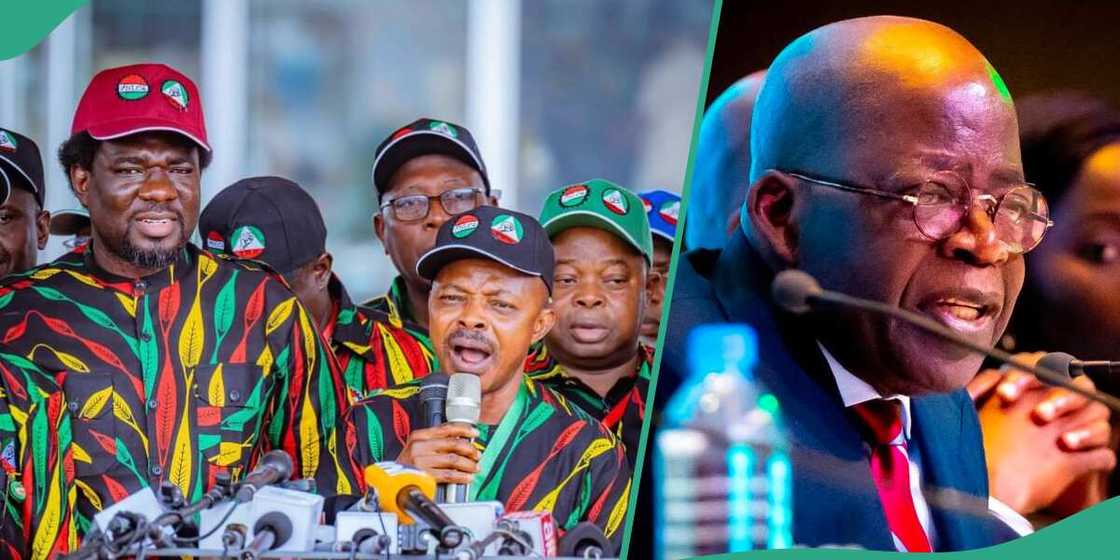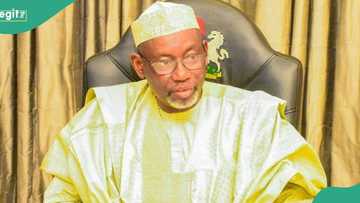Minimum Wage: Lawyer Shares Why Governors Are Right, Explains What Should Be Done
- The minimum wage drama between the governors and organised labour concerning the N60,000 proposed by the federal government has continued to elicit reactions
- Weighing into the issue, Okanlawon Gaffar, a lawyer, told Legit.ng that a uniform minimum wage is not healthy for the state governments
- The legal practitioner said each state should be able to determine its minimum wage based on its capacity and internal revenue
Legit.ng journalist Bada Yusuf is an accomplished politics and current affairs editor, boasting over seven years of experience in journalism and writing.
Okanlawon Gaffar, a legal practitioner, has backed the position of the Nigerian governors that the proposed N62,000 minimum wage by the federal government is not sustainable for states.
In an interview with Legit.ng, the lawyer said setting a minimum wage that would affect all states by the federal government is a problem of centralised government.
He added that states should be able to pay workers based on their capacity.

Source: Twitter
According to him, true federalism states that a state should pay minimum wage based on its capacity, while a civil servant in a northern state would not be jealous of a government worker in a southern state.
He said:
"The governors say N60,000 as minimum wage is not sustainable despite the fact that the Nigeria Labour Congress humorously initially fixed the amount to over N600,000. N600,000 is not possible for a poor country like Nigeria. I don’t think that the federal government should set the minimum wage to affect all states. This is itself the problem of our centralised government.
"Each state should be able to determine its own minimum wage based on its capacity. If Lagos can pay N150,000 as minimum wage and a state like Katsina can pay N30,000, so be it. States still make their own money despite receiving allocations from Abuja.

Read also
"The law is clear": NLC insists on national minimum wage, gives reason govs' proposal won't work
"This is still a weakness of our centralised government. If Nigeria were practising federalism as it should be, states would determine their minimum wage based on their capacity, and someone in Katsina would not be jealous of someone in Lagos because their cost of living is not the same."
Minimum wage: What should be done
He further added that states should be allowed to determine their minimum wage and should be able to sustain themselves based on what they can produce. He stressed that the government should not be the highest employer of labour.
Gaffar said:
"The governors are right that they cannot pay N62,000 as minimum wage, but I am aware that Rivers and Lagos states have come out to say they can pay as high as N70,000 or N80,000 as minimum wage. A centralised system of government for a country like Nigeria is unreasonable. If we truly want to practice true federalism, states should be able to determine their own minimum wage based on their capacity.
"It should not just be based on what states themselves can provide. Decentralisation must also reach the level where states are able to sustain themselves based on what they can produce. So, a state like Osun should not rival Lagos regarding civil service. In fact, the civil service should not be the biggest employer of Labour in any reasonable state.
"Lagos should be able to employ those it can pay a reasonable living wage based on the cost of living of that state, and Zamfara should also. So, if it can only pay a hundred people, if it can pay a thousand people, it should employ a thousand people."
Minimum wage: States paying more than N30k
Legit.ng earlier highlighted some state governors in the country that have started paying more than N30,000 as minimum wage to workers.
Demand for increase in minimum wage has continued to intensify across the country amid harsh economic realities.
Proofreading by James Ojo Adakole, journalist and copy editor at Legit.ng.
PAY ATTENTION: Unlock the best of Legit.ng on Pinterest! Subscribe now and get your daily inspiration!
Source: Legit.ng




